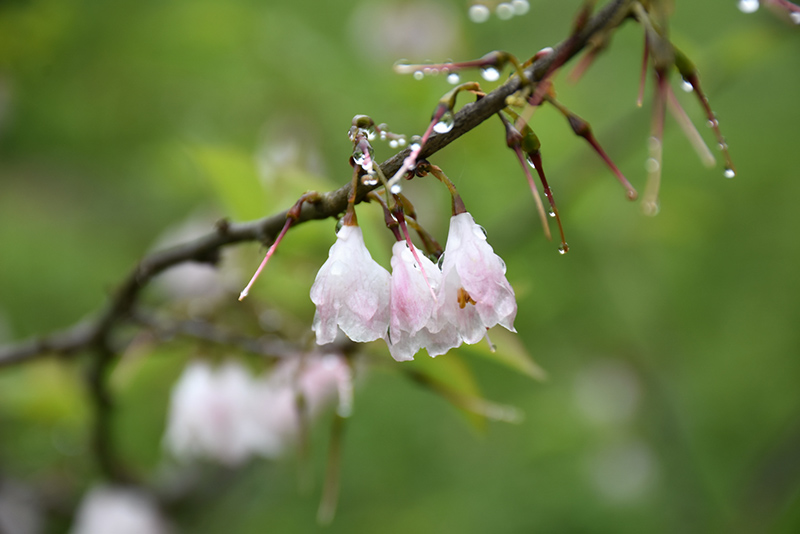>> Home
Rosy Ridge Carolina Silverbell
Halesia tetraptera 'Rosy Ridge'
Height: 30 feet
Spread: 20 feet
Sunlight:
![]()
![]()
![]()
Hardiness Zone: 4b
Other Names: Halesia carolina
Brand: J. Frank Schmidt & Son Co.
Description:
A delicate tall tree for special situations, prized for its dainty pink bell-shaped flowers which hang from the branches in spring; a fussy plant, requires organic acidic soil, adequate moisture and some shelter, can be somewhat difficult to transplant
Ornamental Features
Rosy Ridge Carolina Silverbell features dainty clusters of pink bell-shaped flowers hanging below the branches in early spring. It has lime green deciduous foliage. The pointy leaves turn outstanding shades of yellow and red in the fall.
Landscape Attributes
Rosy Ridge Carolina Silverbell is a deciduous tree with a stunning habit of growth which features almost oriental horizontally-tiered branches. Its average texture blends into the landscape, but can be balanced by one or two finer or coarser trees or shrubs for an effective composition.
This is a relatively low maintenance tree, and should only be pruned after flowering to avoid removing any of the current season's flowers. It has no significant negative characteristics.
Rosy Ridge Carolina Silverbell is recommended for the following landscape applications;
- Accent
- Shade
Planting & Growing
Rosy Ridge Carolina Silverbell will grow to be about 30 feet tall at maturity, with a spread of 20 feet. It has a low canopy with a typical clearance of 3 feet from the ground, and should not be planted underneath power lines. It grows at a medium rate, and under ideal conditions can be expected to live for 50 years or more.
This tree performs well in both full sun and full shade. It prefers to grow in average to moist conditions, and shouldn't be allowed to dry out. It is very fussy about its soil conditions and must have rich, acidic soils to ensure success, and is subject to chlorosis (yellowing) of the foliage in alkaline soils. It is quite intolerant of urban pollution, therefore inner city or urban streetside plantings are best avoided, and will benefit from being planted in a relatively sheltered location. Consider applying a thick mulch around the root zone in winter to protect it in exposed locations or colder microclimates. This is a selection of a native North American species.
